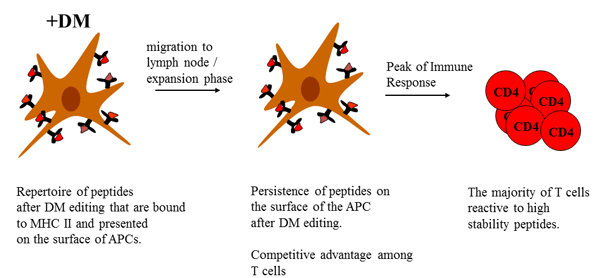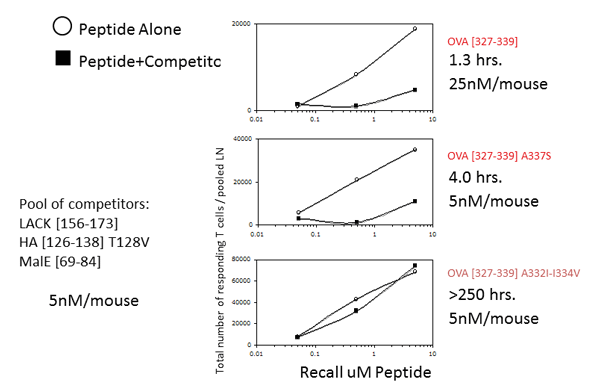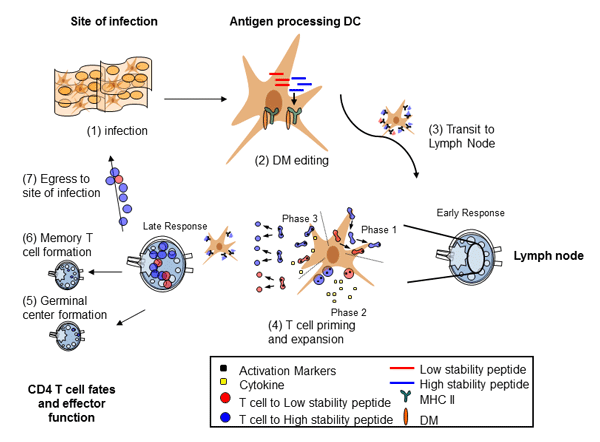URMC / Labs / Sant Lab / Projects / Peptide Persistence
Peptide Persistence on Class II Provides a Competitive Advantage to T Cells During Priming and Expansion In Vivo
The defining feature of the immune system is its ability to distinguish self from non-self. The major component of the immune system responsible for this self / non-self discrimination is the diverse repertoire of antigen-specific T lymphocytes. T cell receptors can only recognize antigens derived from pathogens or transformed cells if these antigens in the derived peptide fragments of pathogenic proteins combine with Major Histocompatibility Complex (MHC) molecules.

Peptides that bind with high stability to class II have an advantages in their initial epitope density due to differential DM editing after antigen uptake. They have additional advantages in recruiting late-arriving CD4 T cells in the lymph node. These peptides can also sustain their responses in the presence of competing responses by T cells with different specificities.
The research in my laboratory centers around the molecular events that regulate MHC class II-restricted antigen presentation and CD4 T cell activation in vivo. We are particularly focused on making connections between the mechanisms involved in intracellular peptide acquisition by class II molecules and use of this insight to rationally enhance human vaccine design. We seek to understand the elements in vivo that dictate the selective specificities in CD4 T cells during protective immune responses, and the competitive events that shape selective recognition of foreign and pathogenic organisms and proteins in vivo. We are also focused on understanding the regulatory events in vivo that shape the specificity and function of immune responses.

Although peptides with low stability interactions with the presenting class II molecule can recruit CD4 T cells into a response when they are administered alone, they fail to do so when they are administered together with "competing" peptides. If you improve the ability of a peptide to bind to class II, it can now sustain responses when introduced with competing peptides.
Our research interests include understanding the relationship between the biochemistry of peptide:MHC class II complexes and specificity of CD4 T cells during both protein and peptide vaccination and how this link can be harnessed to shape CD4 T cell specificity. A second major interest in our laboratory is the role of CD4 T cells in immunity to influenza infection and vaccination, using both animal models and human studies. We are particularly interested in the role that memory CD4 T cell play in protective immunity to potentially pandemic influenza strains.

Peptide persistence controls the development of a productive immune response at several levels.